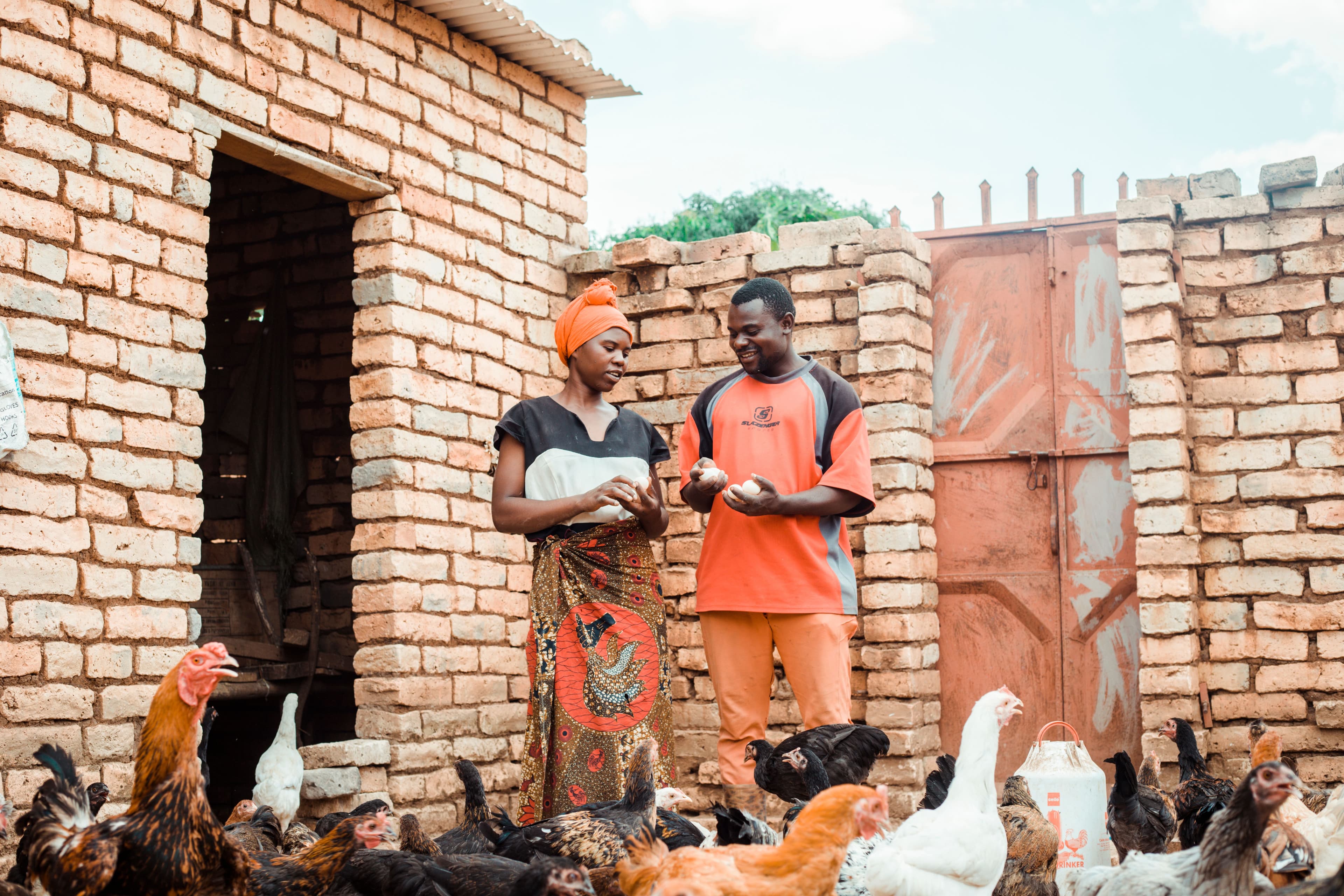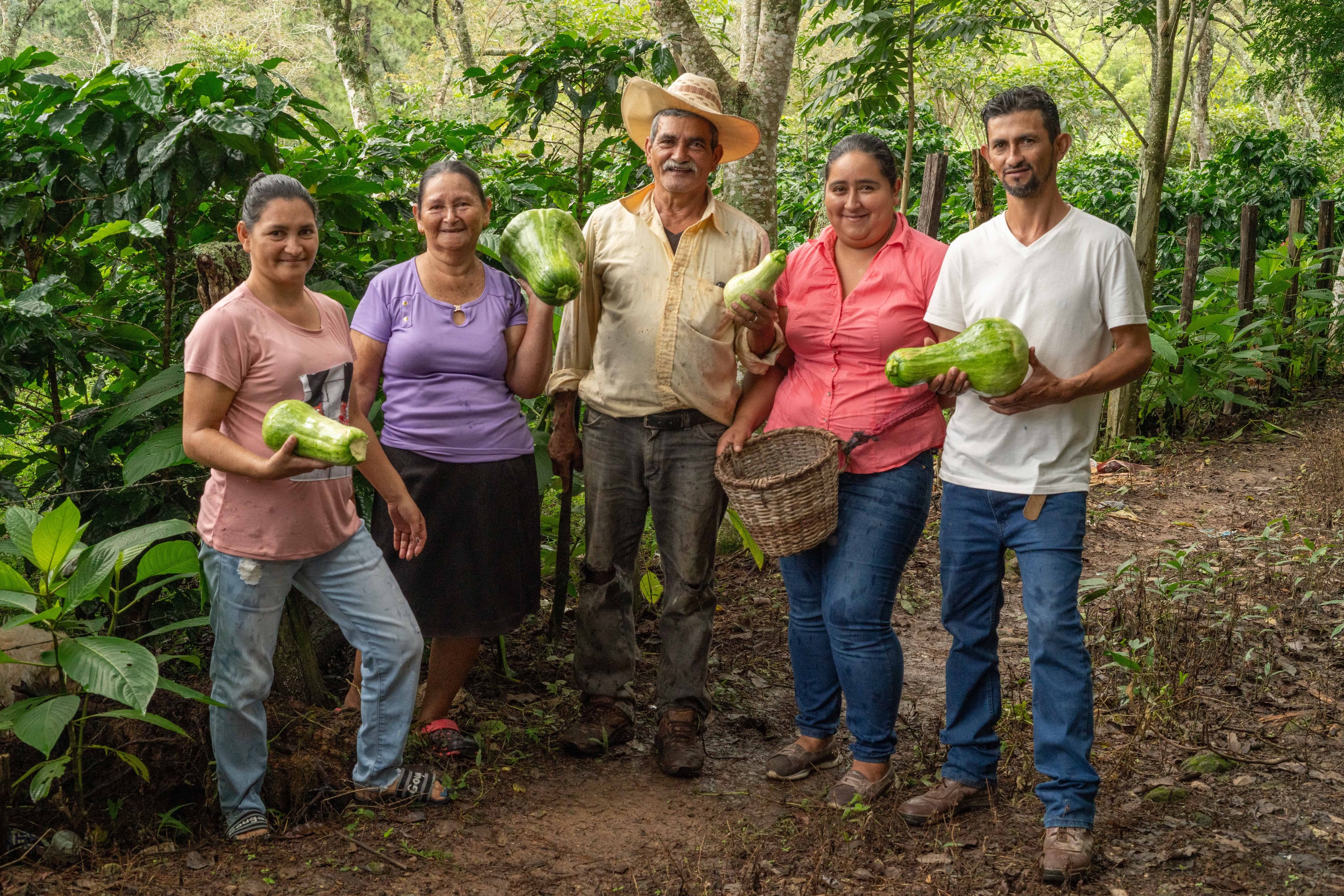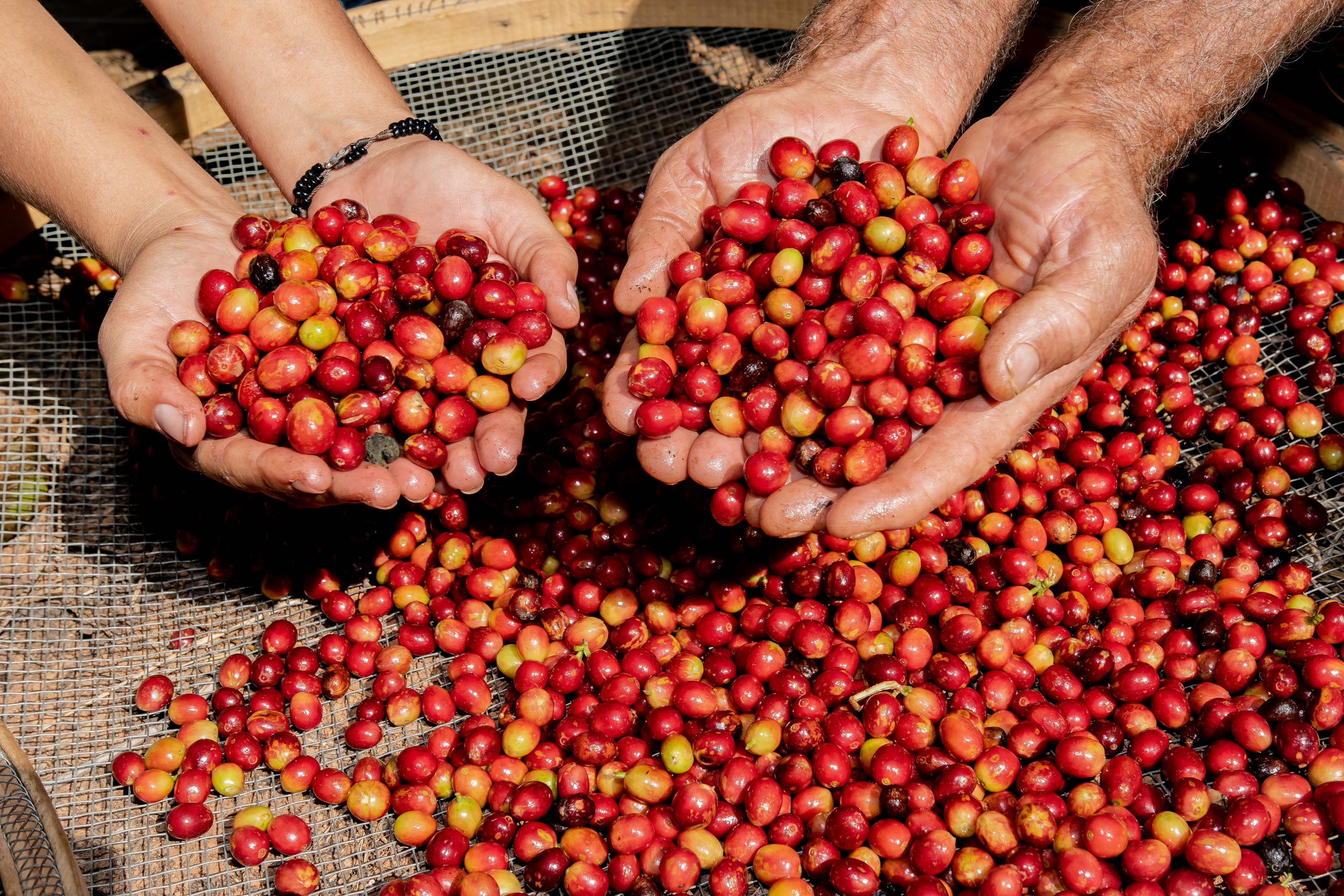
Day in the Life of A Coffee Farmer – Aida
It’s 5:30 am on a March Tuesday morning with the fog floating over the mountainous terrain of Ocotepeque, Honduras. Aida Rodenzo rises from her bed and stares out the window of her bedroom; it’s the room she grew up in as a child. At 45, living with your mother isn’t something you think of doing. However, after recently taking over the family farming business, Aida doesn’t let that worry her; after all, she has plenty to keep her busy.
Jumping into her pickup truck, she heads to the farm. It’s a farm that has been in her family for generations. Aida was born near Tegucigalpa, the highland region of Honduras. Surrounded by mountains and rivers, Tegucigalpa is also the capital and largest city of Honduras. A stark contrast to the farm lifestyle, but as a grand-daughter of a coffee-farming family, she remembers the time on the farm fondly. As one of six siblings, Aida never imagined that at some point in her future she would be running that farm. After finishing secondary school, she attended the local university where she studied Industrial Engineering, a path she worked hard to pave. It paid off because she then worked for a private company for over 15 years before making a life-changing decision.
"Living in a rural area and getting involved in coffee farming is rewarding. I decided to move back home and keep the farm going with my mom because I know how hard my grandfather worked his whole life for this. That is why I find it so great to be back and continue what he started, a real generational transition."
Arriving at her farm around 7 am, an hour drive from her house she shares with her mother, Aida leaps into work. Tending to the coffee trees, of the farm which her grandparents previously ran since she was a little girl. Before Aida and her mother took over, it was failing. Her grandmother had passed away, and therefore her grandfather moved to the city with Aida’s family leaving the farm to her uncle. Unfortunately, her uncle battelled addiction and started losing everything on the farm. Aida’s mother stepped in and took over the family business. That is when Aida moved back home and has been in the field with her mother every day since. She knew she could not let her mother alone run the farm, she needed and wanted to keep a piece of the family’s history alive.
At lunch around 1 pm, Aida and her mother discuss how they knew nothing about coffee and had not even have had a cup of coffee before taking over the family farm. Aida knew she was facing one of her biggest challenges to date. That wasn’t going to stop her though. She knew about the local farmer organization and became a member. Because the organization was quite small, Aida was able to obtain personalized attention receiving training, attending workshops and technical meetings. With her mother by her side the entire time, they learned little by little more and more about coffee. They started planting new varieties which have been an enormous challenge but worth it as they started seeing their production increasing over time.
They are now putting all their efforts in addressing the changing climate by incorporating climate adaptation techniques they learned in trainings from International Coffee Partners (ICP) and coffee&climate (c&c). With technicians from implementing partner Hanns R. Neumann Stiftung (HRNS), Aida has been able to diversify her farm by adding cows to the mix and increasing her coffee production year over year.
Sometimes, Aida will head to town in the afternoon to COCAFELOL where she is now in charge of buying fertilizers and general supervising of the coop. When she is not attending to the coop, she is busy with her farm by ensuring supplies and food are arranged for her cows.
Being a woman in charge is not easy, as Aida explains,
“It’s been a man’s job for generations. Coffee Farms have been mostly run by men, up until recently where I think there are a lot of institutions that are supporting the integration and overcoming of women so that we don’t stay there in the lowest levels, but rather we rise because we women have all the capability.”
Aida describes how other coffee farmers in the region, men, question her methods and don’t take her seriously.
“I feel like it’s very sexist, and it’s been more about men, and sometimes you butt heads with your employees because in the workforce they are used to traditional methods and other men in charge. Now, I am in charge which is already a big change so even when I try introducing new methods it is even more challenging.”
After a long day, she is heading home by 5 pm or 7 pm on a busy day. That is the time Aida looks forward to the most; getting home, relaxing, and spending time with her mother on their porch. Talking about memories of times past, the challenges of farming, or just sitting in quite watching the sun set behind the mountains. Removing her cap, her hair is finally free and dances in the cool evening breeze. Taking a big breath in and out she smiles and says,

"I always say that behind each cup of coffee is a story, and it’s a story of a group of people who strive to make something good and bring it to a market that is fair, where the entire coffee value chain really has that – value! Added value for you the consumer, for your employees, and the environment – everything integrated."



